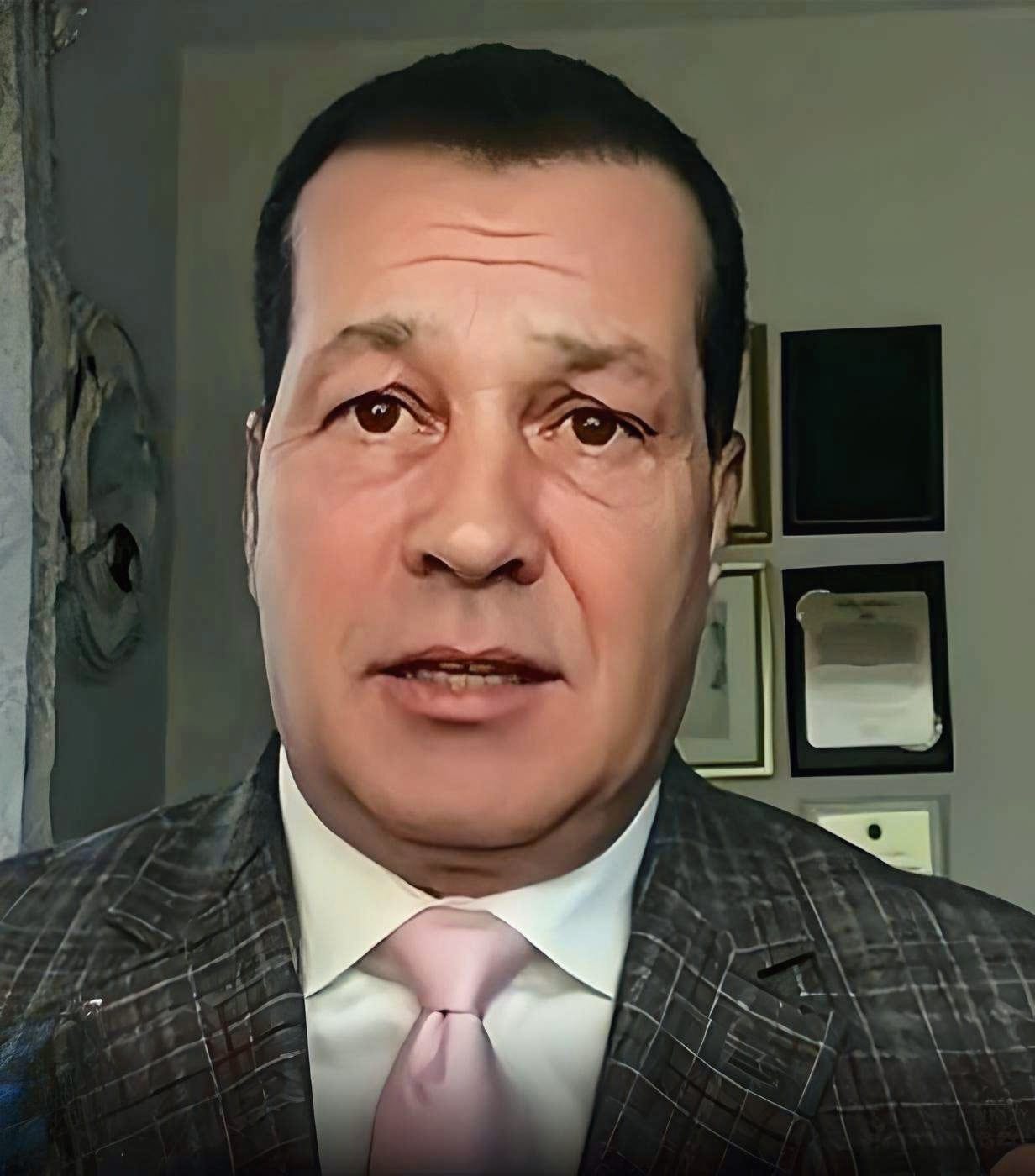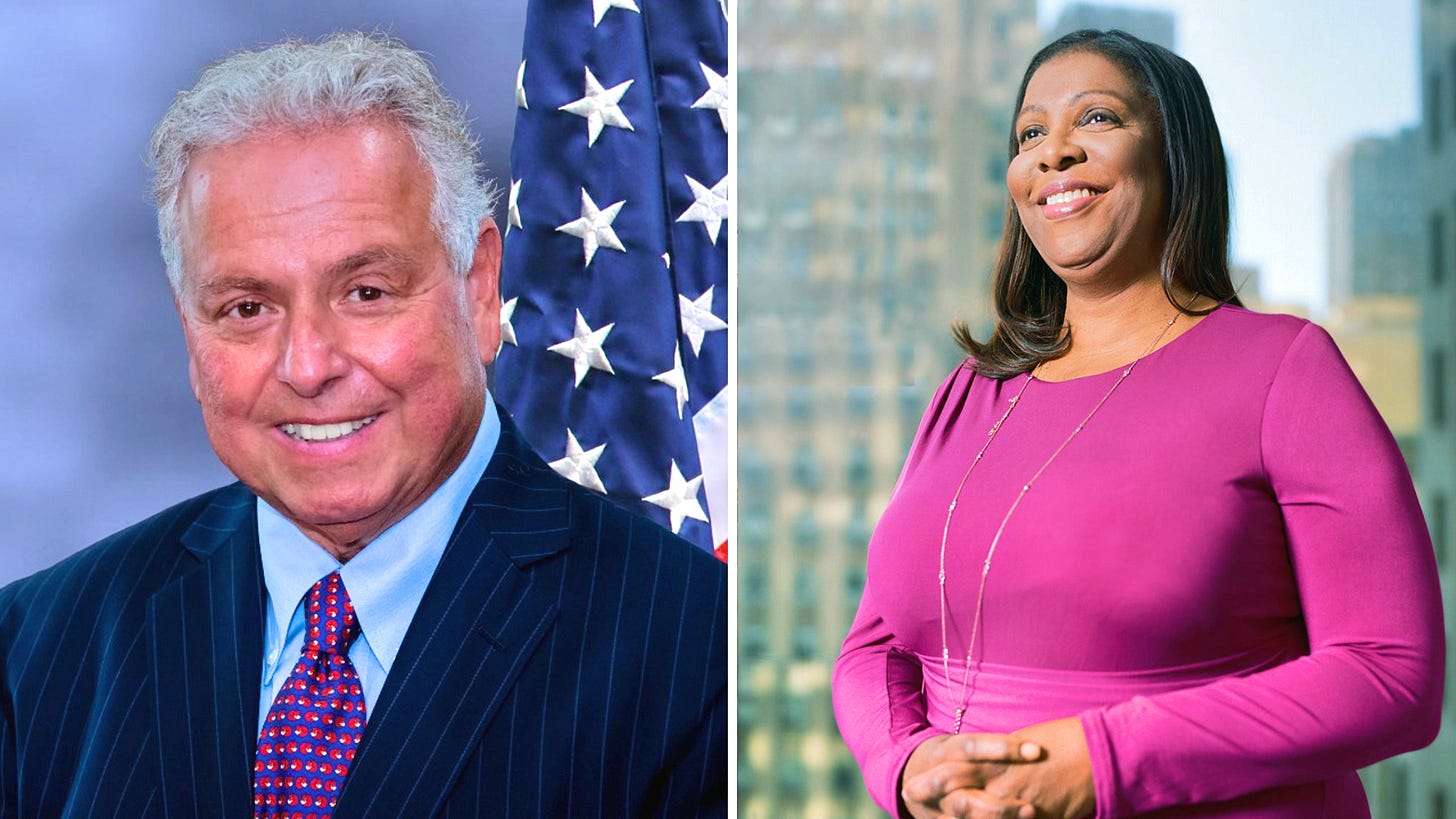Republican US Senate Candidate Cara Castronuova's Battle for Ballot Access in New York
Board of Elections Errors and Political Favoritism Alleged as Castronuova Seeks Restoration to the Ballot
By Dick LaFontaine and Richard Luthmann
Aggrieved Republican U.S. Senate candidate Cara Castronuova is invoking the spirit of Benjamin Franklin in her legal battle to be restored to the New York State primary election ballot. Her case, now before the Albany Appellate Division (Third Department) of the New York State Supreme Court, highlights significant concerns about ballot access and the integrity of the electoral process.
In her brief filed Tuesday morning, Castronuova referred to her case as a “litmus test” for democracy, quoting Benjamin Franklin’s famous warning: "A republic, if you can keep it."
In April, Anthony P. Nunziato and Carl C. Aliviado instituted an objector lawsuit in the Albany County Supreme Court, seeking to have Castronuova tossed from the ballot. Mr. Sapricone joined them. All three are represented by Attorney James Curran, a lawyer and registered lobbyist for the Albany-based Brown & Weinraub, where he has worked for over five years. Before that, he was counsel to the NYS Senate Democratic majority in various roles.
The legal filing addresses alleged errors made by the New York State Board of Elections (BOE) and the influence of political power brokers in the electoral process.
Oral arguments are scheduled for Wednesday afternoon in Albany.
BOE's Alleged Error: Miscalculated Petitioning Period
Election Law § 6-134(4) mandates a 37-day petitioning period. The legislative action earlier this year, which adjusted the petitioning start date to February 29, 2024, required the BOE to set the filing deadline accordingly. A 37-day period starting on February 29, 2024, ends on April 6, 2024. However, because April 6, 2024, falls on a Saturday, the deadline extends to the next business day, Monday, April 8, 2024, as stipulated by General Construction Law § 25-a.
The BOE erroneously set the filing deadline as April 4, 2024, effectively reducing the petitioning period to 35 days and depriving her and her supporters of four crucial days to collect signatures.
Castronuova needed 15,000 valid signatures and submitted 15,727, but her opponent, Michael Sapriacone, and NYS Republican Party Chairman Ed Cox's lawyers reduced her valid number to 14,008, disqualifying her from the ballot.
“The BOE's failure to adhere to the statutory 37-day petitioning period... resulted in the miscalculated filing deadline of April 4, 2024, instead of April 8, 2024. This error deprived Candidate Cara Castronuova and her supporters of the legally required time to collect signatures, rendering the actions of the BOE arbitrary, capricious, and invalid under the doctrine of functus officio,” the legal brief asserts.
"The BOE’s failure to adhere to the mandated 37-day period is not just a minor administrative oversight but a significant legal error that fundamentally compromised the fairness of the electoral process," says Castronuova’s papers.
For Castronuova’s supporters, the change in timeframes made the petitioning process extremely difficult. John Tabacco, a political activist and Castronuova co-defendant in a companion Federal Court Case, said the Election Law scheme made petitioning impossible.
“Anyone who is familiar with the process knows the petition had to be printed correctly. When you are a U.S. Senate candidate, not only do you have to gather 15,000 signatures, but you also need to gather a minimum number from half of the state’s Congressional districts. Allies down-ballot are indispensable. We couldn’t effectively begin petitioning until we knew the district lines, and then we had to print the proper paperwork for down-ballot allies. The whole system was a mess, and the bottom line is that US Senate candidates were robbed of four days of petitioning,” Tabacco said.
“The ambiguous statute, signed into law as a ‘quick fix,’ caused more confusion than certainty. I know it disenfranchised slews of New York Republican Party primary voters. The easy fix would have been to follow the law and make the filing date April 8 to afford the full 37-day petitioning period. The BOE didn’t do that, and now they have a legal mess on their hands,” Tabacco said.
Political Favoritism: The Role of Ed Cox and Michael Sapriacone
Castronuova’s submission frames her case as a test of democracy, emphasizing the constitutional implications. The brief underscores that the only remaining Republican Party nominee, Sapriacone, was hand-picked by NYS Republican Party Chairman Ed Cox, the son-in-law of a former United States President. According to Castronuova, this selection process exemplifies the undue influence of political power brokers.
Easter Egg Hunt in NY GOP Politics: Luthmann Releases State Chair Ed Cox Bombshell On Frank Morano's Radio Show
By Dick LaFontaine and Richard Luthmann
Richard Luthmann appeared on radio personality Frank Morano’s recent broadcast announcing a forthcoming article on malfeasance within the New York State Republican Party. The article specifically alleges Chairman Ed Cox engaged in nonwaivable and undisclosed conflicts of interest and the apparent Falsification of B…
Castronuova’s brief states, “Ballot access for the Respondent, Mr. Sapriacone, and the simultaneous denial of ballot access for Castronuova result from the influence of party bosses and ‘King-Makers.’ Allowing former Presidents and their relatives to act as ‘King-Makers’ and violate the constitutional rights of rank-and-file party members with impunity demonstrates a broken elections system. This system is politically dominated by a Uni-Party fusion of the State's two largest ballot access parties. The New York State Board of Elections (BOE) acts as a political wolf in the sheep’s clothing of government, ignoring the Legislature's specific enactments and the Election Law, corrupted to the core.”
Sapriacone's Contributions to Letitia James
Sapriacone's contributions to Attorney General Letitia James' political campaigns are also under scrutiny.
“It is well known that the Respondent, Mr. Sapriacone, is a generous contributor to Attorney General Letitia A. James’ political campaigns. After Attorney General James announced in her 2018 election campaign that she would ‘Get Trump,’ Mr. Sapriacone and his security company donated to Letitia James’ campaign.”
The brief suggests that Sapriacone’s financial support to the Attorney General may have influenced the NYAG’s non-appearance in the state court proceedings despite being actively involved in the related Brooklyn Federal Court case of Castronuova et al. v. Cox et al., 1:2024cv02428 (EDNY Filed: April 1, 2024).
NYSBOE’s Non-Participation and Accountability
The brief criticizes the BOE for indicating its non-participation in the appeal, given the significant legal errors in its actions. Castronuova contends that the BOE, as the custodian of the electoral process, has a duty to ensure the integrity and fairness of the election.
Fight for Democracy: Cara Castronuova Appeals For Ballot Access
By Dick LaFontaine and Richard Luthmann
On May 1, the New York State Board of Elections (BOE) threw candidate Cara Castronuova off the Republican Primary Ballot for the U.S. Senate in New York based on a series of technicalities. On May 10, Albany Judge agreed with the BOE.
"The BOE chose not to respond, so it conceded Castronuova’s claims of de jure error in its interpretation of the Election Law. This Court has an obligation to ensure the BOE, as a political entity, is not using this legal posture to conceal errors and malfeasance," the brief states.
Castronuova’s papers indicate that the BOE avoided addressing her claims of errors and malfeasance.
Letitia James’ Office Properly Notified
The brief also said Attorney General Letitia James’ Office was given valid notice of the proceedings under Executive Law § 71 and CPLR § 1012(b)(1), despite allegations by Respondents to the contrary.
"The record shows multiple instances where the Attorney General was served with every paper in the actions below and this appeal," Castronuova’s brief asserts, citing the Record on Appeal.
Castronuova believes the non-appearance of Letitia James’ Office is strategic and concerning.
"The NYAG argues in federal court that only state courts should consider the constitutional issues surrounding the Election Law in the first instance. However, the NYAG is a no-show in state court, and its proxies claim that constitutional arguments cannot be heard. The NYAG attempts to create a self-imposed impossibility of state court review."
Legal Implications and Non-Waivable Issues
The legal issues concerning the BOE’s erroneous, arbitrary, capricious, and illegal actions and interpretations are not waivable as they pertain to the subject matter jurisdiction over ballot access. The record clearly shows that Castronuova raised these issues. Specifically, Castronuova challenged the BOE's miscalculation of the petitioning period and the resulting deprivation of four crucial days to collect signatures.
"In any event, the Court of Appeals is clear. Contentions that could not have been so obviated or cured below may be raised on appeal for the first time (Telaro v. Telaro; see also Richardson v. Fiedler Roofing, Inc.; Wright v. Wright.
Functus Officio: Null and Void Actions
Castronuova claims its official function was complete once the BOE accepted her designating petition with 15,727 signatures. Any subsequent actions the BOE took, including the invalidation of signatures, are void under the doctrine of functus officio.
"Functus officio is a common law doctrine that proscribes the power of an official to amend or alter a decision once it has been rendered (Bayne v. Morris). It reflects the concept that once an official has fully performed the tasks assigned, they are without authority to do anything more (Black's Law Dictionary 787 [10th ed 2014])," the brief explains.
Precedent Dictates Ballot Access
Assuming the Albany Court Supreme Court’s determination that Castronuova has 14,008 valid signatures is correct, the significance of legal precedent dictates that she must be placed on the ballot. The precedent, most recently revisited during the COVID-19 pandemic, shows courts shall relax signature and timing requirements as a remedy for a factor having an unquestionable effect on ballot access petitioning.
"For instance, in Esshaki v. Whitmer, (E.D. Mich. 2020), the court recognized that changes in the petitioning period must be accompanied by a corresponding adjustment in signature requirements to ensure fairness," the brief notes.
Constitutional Arguments: Equal Protection and Due Process
The constitutional arguments need not be reached because Castronuova should be restored to the ballot for purely legal reasons. However, the constitutional issues shall be raised for completeness and preservation in the related federal court litigation. "A court should not reach constitutional issues when there are alternative grounds upon which to dispose of the proceeding (Finn v. Leonard C.)," the brief states.
Castronuova argues that the BOE's legal determinations and actions violated her constitutional rights to equal protection and due process. "The First Amendment protects the right of citizens to associate and form political parties to advance common political goals and ideas (Timmons v. Twin Cities Area New Party). By reducing the petitioning period, the BOE placed an undue burden on Castronuova and her supporters, infringing upon their rights to political association and participation in the electoral process through action to secure the ballot access of the candidate of their choice," Castronuova asserts.
Conclusion: A Test of Democracy
As the last names were being signed on that fateful day in Philadelphia, Benjamin Franklin, in a personal aside to some other members, observed the chair Washington had been sitting in as he presided over the Convention. The chair had an emblem of half of a sun. Franklin noted that artists often have difficulty distinguishing between a rising and a setting sun in their artwork.
"I have often and often, in the course of the session, and the vicissitudes of my hopes and fears as to its issue, looked at that behind the President, without being able to tell whether it was rising or setting: but now at length, I have the happiness to know, that it is a rising and not a setting sun,” Franklin said.
The brief closes by saying:
“Cara J. Castronuova respectfully asks this Honorable Court for a ruling that will confirm America’s rising sun of democracy and ballot access available to the people, not a system controlled by the powerful and corrupt. This ruling is crucial because many Americans' faith wanes in their government - as one now controlled by corrupt, uni-party elites who have no obligation or inclination to follow the law.”
“For the preceding reasons, it is respectfully submitted that the Order entered by the Court below must be reversed, and a new de novo Order should be issued pursuant to Sections 16-100, 16-102, and 16-116 of the Election Law, declaring valid the Designating Petition which named the Petitioner as a Candidate of the Republican Party for the Public Office of Member, United States Senate, Statewide State of New York at the Republican Primary Election to be held on June 25, 2024, and to Order said Respondent Board of Elections to place the name of said Candidate upon the official ballots of such Primary Election.”
Oral arguments are scheduled for Wednesday afternoon in Albany.
Castronuova hopes the Appellate Court will restore her to the ballot for the June 25 primary against Michael Sapriacone. The winner faces incumbent U.S. Senator Kirsten Gillibrand in the general election.












https://www.silive.com/crime-safety/2021/08/trial-by-combat-lawyer-richard-luthmann-released-from-federal-custody.html